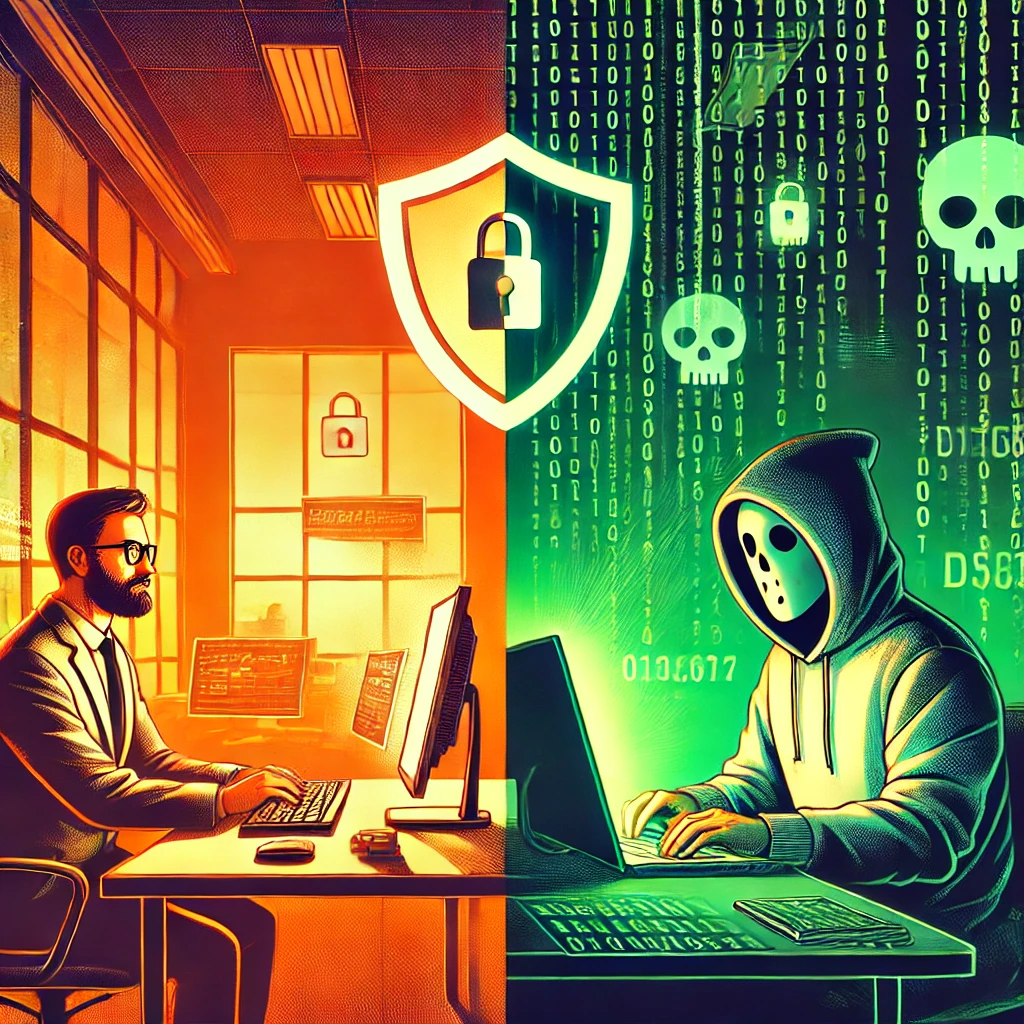What is Ethical Hacking and Why is it Important?
In today’s digital age, where data breaches and cyber threats are increasing, the need for cybersecurity has never been greater. Ethical hacking plays a crucial role in safeguarding sensitive information and securing systems against malicious attackers. But what exactly is ethical hacking, and why is it so important?
What is Ethical Hacking?
Ethical hacking, also known as penetration testing or white-hat hacking, involves legally breaking into computers and devices to test an organization’s defenses. Ethical hackers, or white-hat hackers, are cybersecurity experts hired to uncover vulnerabilities in systems, networks, and applications before malicious hackers can exploit them.

Key points about ethical hacking:
- Legal and Authorized: Ethical hackers work with the permission of the system owner.
- Proactive Security: They identify and fix vulnerabilities before they can be exploited.
- Broad Scope: Ethical hacking covers networks, web applications, mobile apps, and even physical security.
The Difference Between Ethical Hackers and Malicious Hackers
Unlike malicious hackers who exploit vulnerabilities for personal or financial gain, ethical hackers follow a code of conduct. They operate within legal boundaries, often signing contracts that outline their scope of work and objectives. These professionals adhere to strict ethical guidelines to ensure their work protects systems and data.
Why is Ethical Hacking Important?
- Preventing Cyber Attacks Cybercriminals are constantly developing new ways to breach systems. Ethical hacking helps organizations stay one step ahead by identifying vulnerabilities and addressing them before attackers can exploit them.
- Protecting Sensitive Information Data breaches can result in financial losses and damage to a company’s reputation. Ethical hacking ensures that sensitive data, such as customer information and trade secrets, remains secure.
- Compliance with Regulations Many industries require regular penetration testing to comply with standards like GDPR, HIPAA, and PCI DSS. Ethical hacking helps organizations meet these requirements.
- Building Trust Companies that prioritize cybersecurity demonstrate to customers and stakeholders that they take data protection seriously, fostering trust and loyalty.

Real-Life Examples of Ethical Hacking in Action
- Google’s Bug Bounty Program Google rewards ethical hackers who find and report vulnerabilities in their systems. This proactive approach has saved the company from numerous potential breaches.
- Preventing Ransomware Attacks In 2021, ethical hackers uncovered vulnerabilities in a major hospital’s network. By addressing these flaws, they prevented a potential ransomware attack that could have jeopardized patient care.
Skills Required to Become an Ethical Hacker
To be an effective ethical hacker, you need:
- Technical Skills: Proficiency in programming, networking, and operating systems.
- Problem-Solving Abilities: The ability to think like a hacker and identify creative ways to breach systems.
- Knowledge of Tools: Familiarity with penetration testing tools like Nmap, Metasploit, and Wireshark.
- Certifications: Credentials like CEH (Certified Ethical Hacker) or OSCP (Offensive Security Certified Professional).
Ethical Hacking as a Career Path
The demand for ethical hackers is growing rapidly, with organizations across industries seeking skilled professionals to protect their digital assets. A career in ethical hacking offers competitive salaries, opportunities for growth, and the chance to make a real impact in the fight against cybercrime.

How to Get Started with Ethical Hacking
- Learn the basics of networking, operating systems, and programming.
- Practice using ethical hacking tools and techniques in a controlled environment, such as a virtual lab.
- Pursue certifications like CEH or CompTIA Security+ to validate your skills.
- Stay updated on the latest cybersecurity trends and threats.
Ethical hacking is a vital component of modern cybersecurity. Whether you’re an aspiring hacker or a business looking to protect your assets, understanding the fundamentals of ethical hacking is the first step towards building a safer digital world.